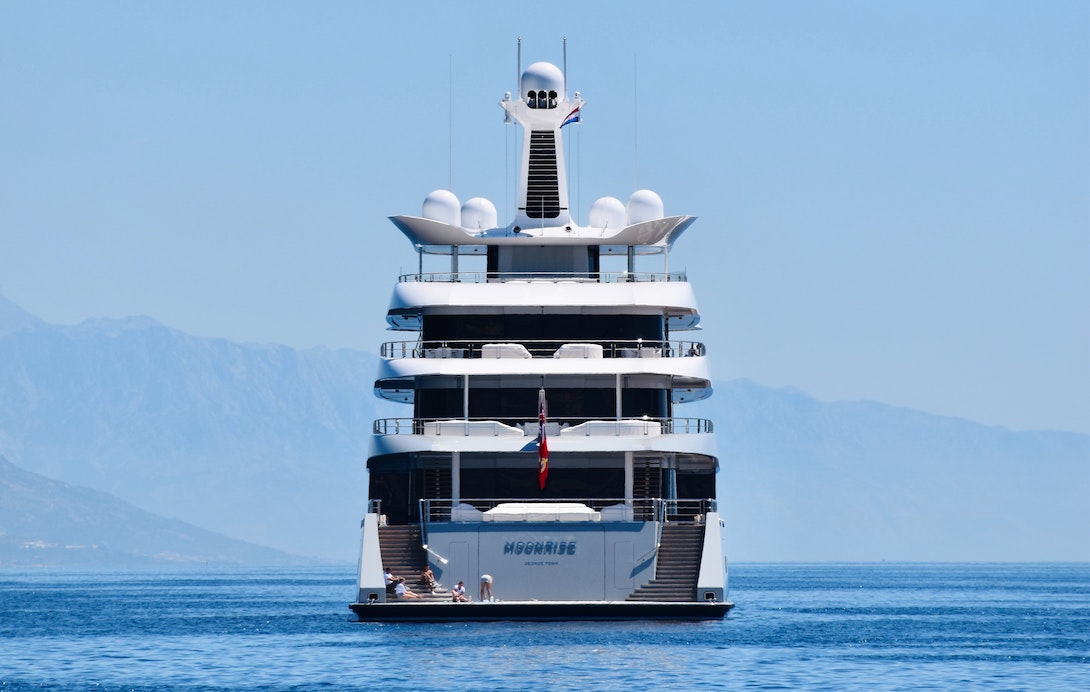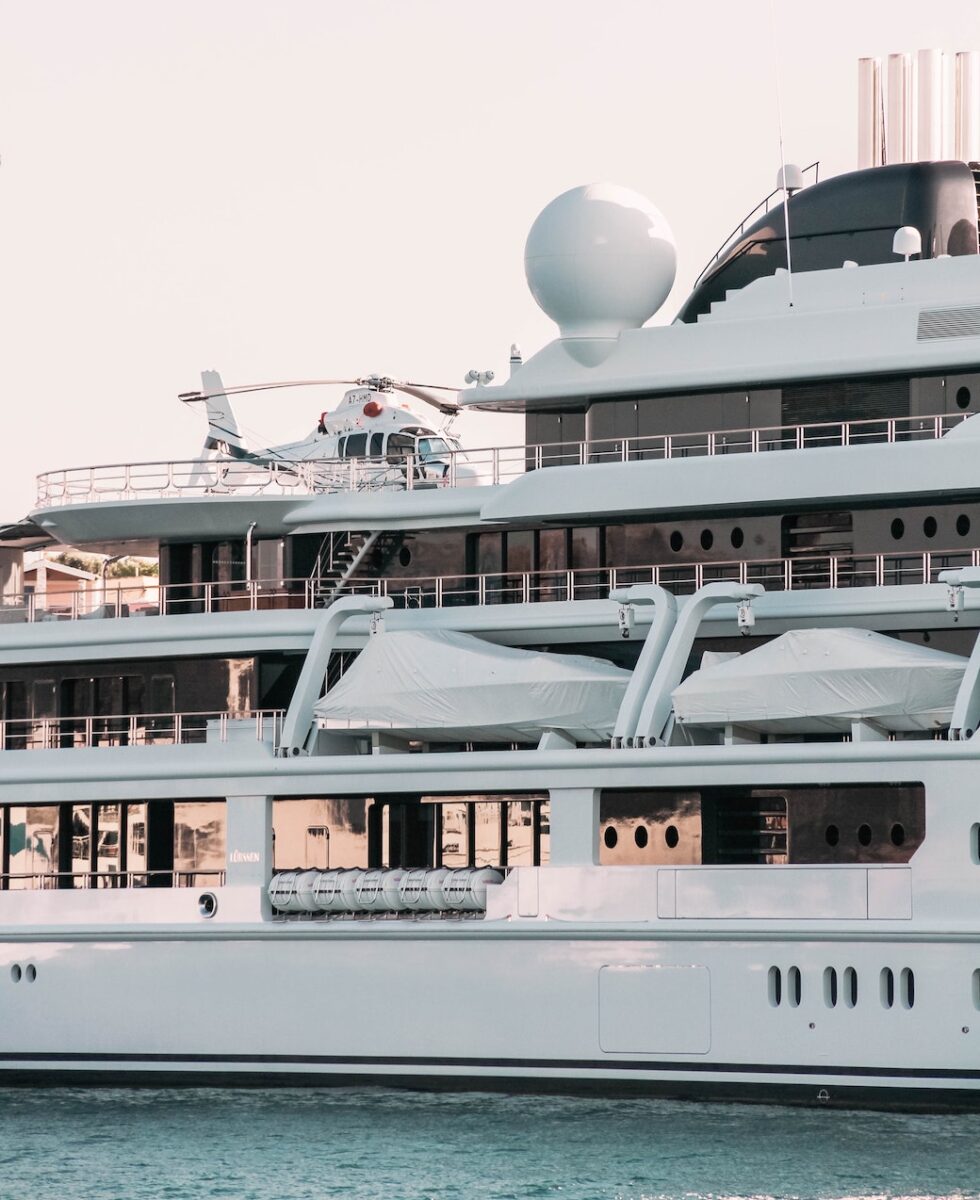From Bezos’ Y721 to Abramovich’s Ecstasea, these are playthings of the uber-rich with designations that call to mind an eau de toilette or knock-off Nokia

Words by Tara Okeke
The time to sink or swim is nigh. Over the summer, we clutched at a vague sense of cohesion and hymned for a sporting homecoming. But that kind of uplift simply could not hold. Tournaments cannot reverse deleterious pandemic roadmaps. Trophies, won or lost, cannot impede infection. Racist pricks will forever be racist pricks. It has been decreed: we must learn to live with contagion and uncertainty. And as satirist Peter Cook once put it, we must learn to live with the autocrats who have resolved to lead us ‘sinking giggling into the sea’. Suffice to say, then, we are sunk.
Most of us anyway. On the other side of the pond – cresting the wave of an approximately $200 billion fortune – Jeff Bezos cries ‘We who?’ aboard his new superyacht, Y721. According to recent reports, Bezos has spent an estimated $500 million on Y721 which, once completed, is set to measure some 417ft (127m) from bow to stern. In doing so, he joins the elite ranks of those with a penchant for toys with designations that call to mind either an eau de toilette (per Steve Jobs’ Venus and Roman Abramovich’s Ecstasea) or a knock-off Nokia 3310.
While there is nothing new in the alignment of the very rich man and the very expensive contrivance, there is something very of this moment in that which superyachts accord to those who can afford them. Namely – through the immersion of displays of status within the schema of privacy – a surfacing of fluid principles of pleasure.
The business of the superyacht – from design, to delivery, to docking – is remarkably opaque. As such, these mighty vessels of equally capacious definition – there are no fixed bounds and no requisite features at play here other than it should be big and you should derive comfort from it, making a very large bowl of soup a superyacht by definition – give their owner licence to stunt in the (gilded) shadows. To capture an audience of their own selection and stripe, forsaking all others. To form and profess a relationship to the world predicated on aesthetics in the absence of reality.

There are leagues between the intrepid and untamed roots of the word yacht (from the Dutch ‘jacht’, meaning ‘hunt’) and the fetishistic and recherché resonances contained within the contemporary model (according to scholar Namwali Serpell, the word fetish is ‘traceable to “factitious”’ and in turn to ‘the loss of our relationships to reality’). The combining form ‘super-’ feels excessive and infantile, like a semantic beg friend. Genuinely good things don’t begin with ‘super-’, just as – to lap from the eminently quotable waters of the fount that is The Simpsons – genuinely good things ‘don’t end in “-eum”… they end in “-mania”.’
The beautiful game of being rich – needlessly rich, heedlessly rich – is now being played in plain sight with statement pieces that tread the line of legibility and illegibility, of mundanity and mania. Suck it, F Scott: the uber-rich of our Roaring Twenties get to be Jay Gatsby and Nick Carraway, Tom and Daisy Buchanan, all at once; overblown and corny, contemptible and beguiling, inside looking out, outside looking in. And their purchase power, turned possessions, turned statement pieces – every foot of steel, every imposing deck, every formidable mast – is an intervention at the edge of reality.
We clutch at cohesion; they create a stratified imaginary. We seek equity in a world mired in malfeasance – we lose; they seek equity in markets of their own making – they win. And so it would appear the player and the game are now one and the same – feel free to hate both.
This article was featured in ICON’s Autumn 2021 issue. Read the digital edition for free


















